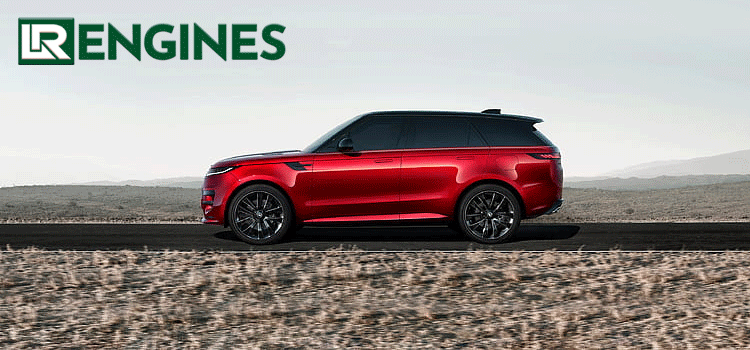In terms of environmental sustainability, how does the Range Rover 2.0 engine minimize its carbon footprint?

Introduction:
Luxury and sustainability converge in the evolution of automotive engineering, exemplified by the Range Rover 2.0 engine. Amidst growing concerns over climate change and environmental degradation, automakers are compelled to innovate, balancing performance with eco-consciousness. We delve into how the RangeRover 2.0 engine embraces environmental sustainability, mitigating its carbon footprint while delivering the hallmark performance and opulence expected of the marque.
Engineering for Efficiency: The Core of Sustainability
At the heart of the Range Rover 2.0 engine’s eco-friendly credentials lies a meticulous approach to efficiency. Advanced engineering techniques optimize combustion, minimizing fuel consumption and emissions. Through innovations in design, materials, and technology, each component synergizes to enhance efficiency without compromising on power or refinement.
Lightweight Materials: Reducing Carbon Footprint Mile by Mile
Weight reduction is paramount in enhancing fuel efficiency and reducing emissions. The Range Rover 2.0 engine integrates lightweight materials such as aluminum and high-strength alloys, shedding excess weight without sacrificing structural integrity. This strategic use of materials translates into tangible environmental benefits, as every kilogram saved translates to reduced fuel consumption and emissions during operation.
Electrification: Powering the Future, Sustainably
Embracing electrification is pivotal in the journey towards sustainable mobility. The Range Rover 2.0 engine incorporates hybrid technology, leveraging electric power to complement traditional combustion. Through regenerative braking and electric propulsion modes, the vehicle optimizes energy utilization, minimizing its environmental footprint while enhancing performance and drivability.
Intelligent Power Management: Orchestrating Efficiency
Efficient power management is essential in maximizing the eco-friendly potential of the RangeRover 2.0 engine. Smart algorithms and sensors dynamically regulate power distribution, optimizing efficiency based on driving conditions and user preferences. This intelligent orchestration minimizes wastage and enhances the overall sustainability of the vehicle’s operation.
Eco-Friendly Materials: Upholding Luxury with Responsibility
Beyond performance enhancements, the RangeRover 2.0 engine embodies sustainability through the use of eco-friendly materials. From responsibly sourced leather to recycled plastics, every component reflects a commitment to environmental stewardship without compromising on the luxurious appeal synonymous with the brand. By prioritizing sustainable sourcing and manufacturing practices, Range Rover sets a precedent for ethical luxury in the automotive industry.
Lifecycle Assessment: A Holistic Approach to Sustainability
True sustainability extends beyond the confines of the manufacturing process, encompassing the entire lifecycle of the vehicle. Range Rover conducts comprehensive lifecycle assessments to evaluate environmental impacts across all stages, from production and operation to end-of-life disposal. By identifying areas for improvement and implementing proactive measures, the marque ensures that every Range Rover 2.0 engine embodies a commitment to environmental stewardship from cradle to grave.
Emissions Reduction Strategies: Charting a Greener Path Forward
Mitigating emissions is central to the eco-friendly ethos of the Range Rover 2.0 engine. Advanced emissions control technologies, including particulate filters and selective catalytic reduction systems, minimize harmful pollutants, ensuring compliance with stringent environmental regulations. Moreover, ongoing research and development initiatives strive to push the boundaries of emissions reduction, charting a greener path forward for the automotive industry as a whole.
Sustainable Innovation: Shaping the Future of Mobility
The Range Rover 2.0 engine epitomizes the intersection of sustainability and innovation, serving as a beacon for the future of mobility. Through continuous research, development, and collaboration, Range Rover pioneers new technologies and methodologies aimed at reducing the environmental impact of automotive transportation. From alternative fuels to autonomous driving, the marque remains at the forefront of sustainable innovation, shaping a more eco-conscious landscape for generations to come. More details about the range rover engine here at the https://www.lrengines.co.uk/ .
Conclusion
In the pursuit of luxury, performance, and sustainability, the Range Rover 2.0 engine stands as a testament to automotive engineering excellence. By integrating efficiency, electrification, and eco-conscious design principles, Range Rover redefines the paradigm of luxury mobility, proving that opulence and environmental responsibility need not be mutually exclusive. As we navigate towards a greener horizon, the Range Rover 2.0 engine serves as a guiding light, inspiring industry-wide transformation and reaffirming the notion that sustainable luxury is not just a possibility but a necessity in the modern era.

